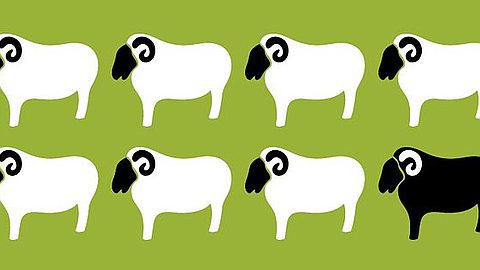How to Make Good Decisions ... Faster

Take a look at this paragraph:
Cna yuo raed tihs? I cdn'uolt blveiee taht I cluod aulaclty uesdnatnrd waht I was rdanieg. The phaonemnel pweor of the hmuan mnid, aoccdrnig to a rsereeachr at Cmabrigde Uinervtisy, it dseno't mtaetr in waht oerdr the ltteres in a wrod are, the olny iproamtnt tihng is taht the frsit and lsat ltteers be in the rghit pclae. Tihs is bcuseae the huamn mnid deos not raed ervey lteter by istlef, but the wrod as a wlohe. Azanmig, huh? Yaeh, and I awlyas tghuhot slpeling was ipmorantt!
Isn't it astounding how easily you can decipher words with information that is ambiguous, garbled or less than complete? We are wired to see underlying patterns, fill in the gaps, straighten out the miscues and discover the hidden meanings. The same is true of our innate ability to make decisions.
The 80/20 Rule is pervasive in our world:
- 80% of traffic jams occur on 20% of roads.
- 80% of beer is consumed by 20% of drinkers.
- 80% of classroom participation comes from 20% of students.
- 80% of profits come from 20% of customers.
Applying the 80/20 Rule to your thinking can help you make smarter, faster, more intuitivedecisions.
In most situations, you can gather 80 percent of the relevant information in the first 20 percent of the time available. Generally, the remaining 20 percent of the data (which would take the remaining 80 percent of your time to obtain) would not substantially improve the quality of your decision. Your intuition is good enough to organize the data and fill in the gaps, just as it did in the nonsense paragraph above.
Specifically, here's how you might apply the 80/20 Rule to your next decision. First, identify the top five pieces of information you need to make the decision. Then select which four of these five are highest in priority. Once you've gathered this information, you will have roughly 80 percent of the information you need. The last 20 percent is less important. Now harness all of your experience and your intuition to fill in the blanks and make a great decision--faster than before.
So quit analyzing everything and, instead, follow your intuition.





